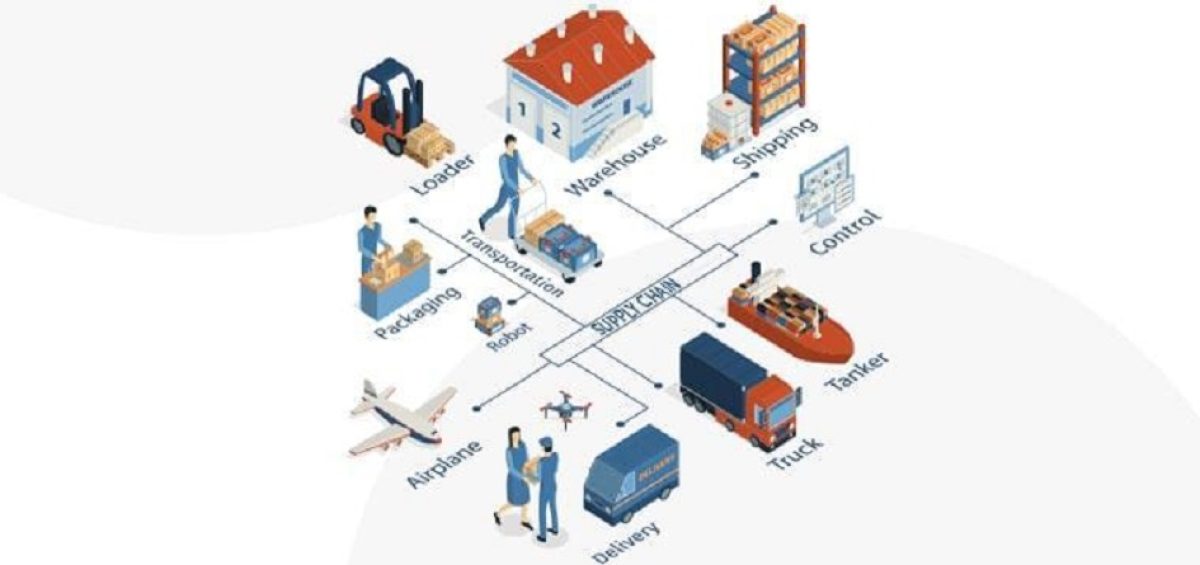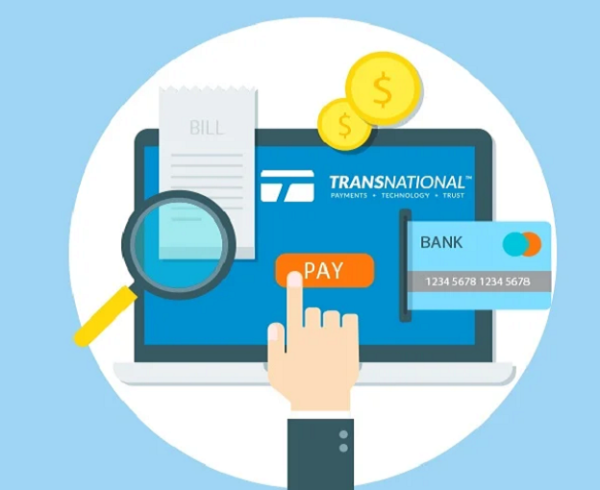Success in today’s hectic and fiercely competitive corporate world depends on efficient supply chain management (SCM). Companies are increasingly turning to Enterprise Resource Planning (ERP) systems to optimize their supply chain operations. ERP in supply chain management integrates various business processes and functions, enabling seamless data flow and enhancing decision-making capabilities. This comprehensive guide explores the role of ERP in supply chain, examining its types, benefits, and real-world examples.
ERP systems serve as the backbone of modern supply chain management, offering a centralized platform that streamlines operations from procurement to delivery. By consolidating information across departments, ERP systems eliminate data silos and provide a unified view of the supply chain. This holistic approach ensures that all stakeholders have access to accurate, real-time information, facilitating better coordination and efficiency.
The implementation of ERP in the supply chain addresses several critical challenges. It enhances visibility, enabling companies to track inventory levels, monitor supplier performance, and forecast demand accurately. Additionally, ERP systems improve communication and collaboration across the supply chain, reducing delays and errors. Companies can respond more swiftly to market changes and customer demands, ultimately gaining a competitive edge.
This article delves into the various types of ERP systems used in supply chain management, highlighting their unique features and applications. It also discusses the key benefits of integrating ERP into supply chain processes, including cost reduction, improved productivity, and enhanced customer satisfaction. Furthermore, we will examine some of the best ERP solutions available for supply chain management, providing insights into their functionalities and advantages.
For those seeking more in-depth knowledge, references to ERP in Supply Chain Management PDF resources will be provided, offering additional reading material. By the end of this comprehensive guide, readers will have a thorough understanding of how ERP systems revolutionize supply chain management, driving efficiency, profitability, and growth.
Role of ERP in Supply Chain Management
The role of ERP in the supply chain is multifaceted, encompassing the integration of various business processes, enhancement of data visibility, and improvement of overall operational efficiency.
1. Integration of Business Processes:
ERP systems unify different functions, such as procurement, manufacturing, inventory management, order processing, and distribution. This integration ensures that all departments work in sync, reducing redundancy and increasing efficiency.
2. Enhanced Data Visibility:
One of the primary advantages of ERP in Supply Chain Management systems is the centralized data repository. This centralization provides real-time visibility into inventory levels, order status, and production schedules, enabling informed decision-making.
3. Improved Operational Efficiency:
By automating routine tasks and processes, ERP systems minimize human errors and free up resources for more strategic activities. This automation leads to faster processing times, reduced lead times, and increased overall productivity.
4. ERP in Supply Chain Management: Better Collaboration
ERP systems foster better communication and collaboration among various stakeholders, including suppliers, manufacturers, and distributors. This improved collaboration results in a more responsive and agile supply chain.
5. Scalability and Flexibility:
ERP solutions are built to evolve with a company. They can accommodate an increasing number of users, transactions, and data volumes, ensuring that the system continues to support the business as it expands.
Types of ERP in Supply Chain Management
There are several types of ERP systems used in supply chain management, each catering to different business needs and industry requirements. Here are some common types:
1. On-Premise ERP Systems: These are traditional ERP systems installed and run on the company’s own servers. They offer high customization and control but require significant upfront investment and ongoing maintenance.
2. Stored in the cloud ERP Systems: These may be accessed online and are housed on the vendor’s servers. They are less expensive up front and provide scalability and flexibility. Cloud-based ERP systems are ideal for businesses looking for quick deployment and minimal IT infrastructure.
3. Hybrid ERP Systems: A combination of on-premise and cloud-based systems, hybrid ERP allows businesses to leverage the benefits of both. Critical functions can be maintained on-premise, while less sensitive processes are managed in the cloud.
4. Industry-Specific ERP Systems: These systems are tailored to meet the unique requirements of specific industries, such as manufacturing, retail, healthcare, and logistics. They come with pre-configured processes and features relevant to the particular industry.
5. Open-Source ERP Systems: These are ERP systems with source code that is freely available for modification and customization. They offer high flexibility and lower costs but require in-house technical expertise for implementation and maintenance.
ERP Systems in Supply Chain Management: Key Features
ERP in Supply Chain Management systems offer a wide range of features that are specifically designed to enhance supply chain management. Here are some of the key features:
- Inventory Management: ERP systems provide tools for tracking and managing inventory levels, including automated reordering, stock level monitoring, and inventory optimization.
- Procurement Management: ERP systems streamline the procurement process, from requisition to purchase order management, supplier evaluation, and contract management.
- Order Management: ERP systems facilitate order processing, including order entry, order tracking, and order fulfillment. This ensures timely and accurate order delivery.
- Warehouse Management: ERP systems offer functionalities for managing warehouse operations, including receiving, put-away, picking, packing, and shipping.
- Transportation Management: ERP systems optimize transportation logistics, including route planning, carrier selection, shipment tracking, and freight management.
- Demand Forecasting: ERP systems provide tools for demand forecasting and planning, enabling businesses to anticipate customer demand and adjust production and inventory levels accordingly.
- Supplier Relationship Management: ERP systems help manage relationships with suppliers, including performance tracking, communication, and collaboration.
- Analytics and Reporting: ERP systems offer advanced analytics and reporting capabilities, providing insights into supply chain performance and enabling data-driven decision-making.
Examples of ERP in Supply Chain Management
To illustrate the practical application of ERP in supply chain management, here are some real-world examples:
1. Walmart: Walmart uses a sophisticated ERP system to manage its vast supply chain network. The system integrates inventory management, procurement, and distribution processes, enabling the company to maintain low inventory levels while ensuring product availability.
2. Toyota: Toyota’s ERP system supports its Just-In-Time (JIT) manufacturing approach by providing real-time data on inventory levels, production schedules, and supplier performance. This integration ensures that materials and components are available exactly when needed, reducing waste and improving efficiency.
3. Amazon: Amazon’s ERP system integrates various supply chain functions, from order processing to last-mile delivery. The system provides real-time visibility into inventory levels, order status, and logistics, enabling Amazon to meet its commitment to fast and reliable delivery.
4. Coca-Cola: Coca-Cola uses an ERP system to manage its global supply chain, which includes manufacturing, distribution, and retail operations. The system provides real-time data on production and inventory levels, ensuring efficient production planning and distribution.
FAQs
What is an ERP in supply chain?
ERP systems in supply chain management integrate business processes like procurement, production, inventory, order processing, and distribution, enhancing efficiency, visibility, and decision-making. They optimize resource utilization, improve customer satisfaction, and gain market competitiveness.
What does ERP stand for in logistics?
In logistics, ERP stands for Enterprise Resource Planning, which refers to integrated software systems used to manage and automate various business processes across an organization, including supply chain operations, inventory management, procurement, and order processing, ensuring efficient and streamlined logistics management.
What is the difference between ERP and SAP?
ERP software, developed by SAP, streamlines business processes and functions, improving efficiency. SAP offers a suite of applications for business process management, a specific brand of integrated management systems.
Which ERP software is best for supply chain management?
The best ERP software for supply chain management depends on business needs and size. Top choices include SAP ERP, Oracle ERP Cloud, Microsoft Dynamics 365, Infor CloudSuite, and NetSuite, each with unique strengths for specific industries.
What is ERP vs CRM vs SCM?
ERP manages core business processes like finance, HR, manufacturing, and supply chain, while CRM enhances sales, marketing, and customer service through data analysis. SCM optimizes goods, information, and finances, ensuring efficient supply chain operations.
Benefits of ERP in Supply Chain Management
Integrating ERP into supply chain management offers numerous benefits, including:
1. Cost Reduction: ERP systems streamline processes and eliminate inefficiencies, leading to significant cost savings. By automating routine tasks and optimizing inventory levels, companies can reduce operational costs.
2. Improved Productivity: ERP in Supply Chain Management systems enhance productivity by providing employees with the tools and information they need to perform their tasks more efficiently. Automated workflows and real-time data access reduce the time spent on manual processes.
3. Enhanced Customer Satisfaction: With real-time visibility into inventory and order status, companies can respond more quickly to customer inquiries and fulfill orders more accurately.
A greater level of client satisfaction and loyalty results from this response.
4. Better Decision-Making: ERP systems provide comprehensive, real-time data on all aspects of the supply chain. This data empowers managers to make informed decisions, improving overall supply chain performance.
5. Scalability: ERP systems are designed to grow with the business. They can handle increasing volumes of data and transactions, ensuring that the system continues to support the business as it expands.
6. Regulatory Compliance: ERP systems help companies comply with industry regulations and standards by providing accurate and timely data for reporting and audits.
Challenges in Implementing ERP in Supply Chain Management
While the benefits of ERP systems in supply chain management are significant, implementing these systems can present challenges. Understanding these challenges is crucial for a successful deployment.
- High Initial Costs: Implementing an ERP system involves substantial initial investment in software, hardware, and consulting services. This expense may be a challenge for small and medium-sized businesses.
- Complex Integration: Integrating ERP systems with existing IT infrastructure and legacy systems can be complex and time-consuming. Careful preparation and implementation are necessary to guarantee a smooth integration.
- Change Management: Introducing a new ERP in Supply Chain Management examples often necessitates changes in business processes and workflows. Employees may resist these changes, requiring effective change management strategies and training programs.
- Data Migration: Migrating data from legacy systems to the new ERP system is a critical and challenging task. Ensuring data accuracy, consistency, and integrity during migration is essential.
- Customization Requirements: While ERP systems offer extensive functionalities, businesses often require customizations to meet their unique needs. Customizing the ERP system can add to the implementation time and cost.
- Security Concerns: With the centralization of critical business data, ensuring the security of the ERP system is paramount. Implementing robust security measures and protocols is necessary to protect against data breaches and cyber threats.
Best ERP for Supply Chain Management
Choosing the best ERP system for supply chain management depends on various factors, including the size of the business, industry requirements, and specific operational needs. Here are some of the top ERP solutions for supply chain management:
1. SAP ERP: SAP is one of the leading ERP providers, offering comprehensive solutions for supply chain management. Its ERP system integrates various supply chain functions, providing real-time visibility and advanced analytics.
2. Oracle ERP Cloud: Oracle’s cloud-based ERP system is designed to streamline supply chain processes and improve operational efficiency. It offers robust features for procurement, inventory management, and order fulfillment.
3. Microsoft Dynamics 365: Microsoft Dynamics 365 is a flexible and scalable ERP solution that integrates supply chain management with other business functions. It provides real-time data and insights, enabling better decision-making and improved efficiency.
4. Infor CloudSuite: Infor’s ERP system is designed for industries such as manufacturing, distribution, and retail. It offers advanced features for inventory management, procurement, and order processing.
5. NetSuite: NetSuite’s cloud-based ERP system provides a comprehensive solution for supply chain management. It integrates various functions, including procurement, inventory management, and order fulfillment, offering real-time visibility and analytics.
Best Practices for Implementing ERP in Supply Chain Management
To ensure a successful ERP implementation in supply chain management, consider the following best practices:
- Conduct a Thorough Needs Assessment: Understand your business requirements and goals before selecting an ERP system. This includes identifying key processes, pain points, and desired outcomes.
- Choose the Right ERP Vendor: Select an ERP vendor that has experience in your industry and offers solutions tailored to your specific needs. Evaluate vendor reputation, support services, and cost.
- Plan for Change Management: Develop a change management strategy to address employee resistance and ensure a smooth transition. This covers outreach, instruction, and assistance programs.
- Involve Stakeholders: Include important parties from various departments in choosing and implementing. Success depends on their participation and buy-in.
- Invest in Training and Support: Provide comprehensive training to employees on how to use the ERP system effectively. Assure continued assistance to deal with any problems that may occur.
- Monitor and Evaluate Performance: Continuously monitor the performance of the ERP system and its impact on supply chain operations. Key performance indicators (KPIs) may be used to gauge progress and pinpoint areas needing enhancement.
ERP systems are a crucial tool in supply chain management, enabling businesses to streamline operations, improve efficiency, and enhance customer satisfaction. They provide real-time visibility and data-driven insights, enabling businesses to make informed decisions and respond quickly to market changes. This guide explores the role of ERP in supply chain management, different types of ERP systems, real-world examples, and key benefits of ERP integration. It highlights the best ERP solutions and provides detailed information and case studies. By leveraging ERP systems, businesses can transform their supply chain operations, driving efficiency, profitability, and growth in today’s competitive market.







